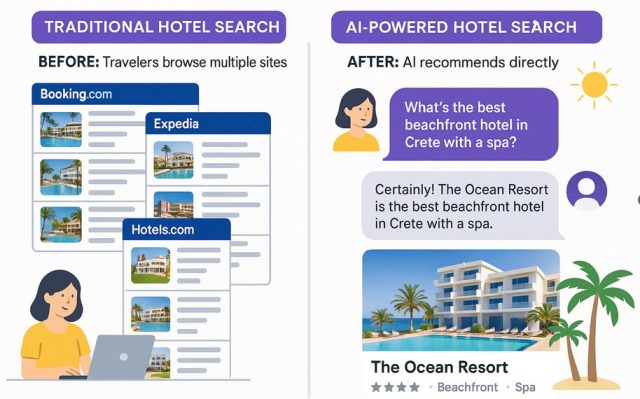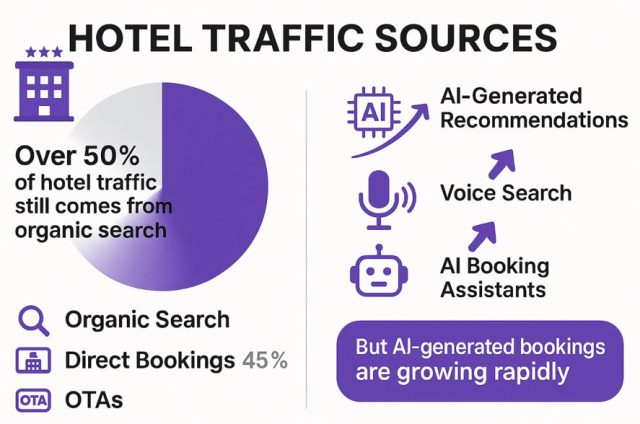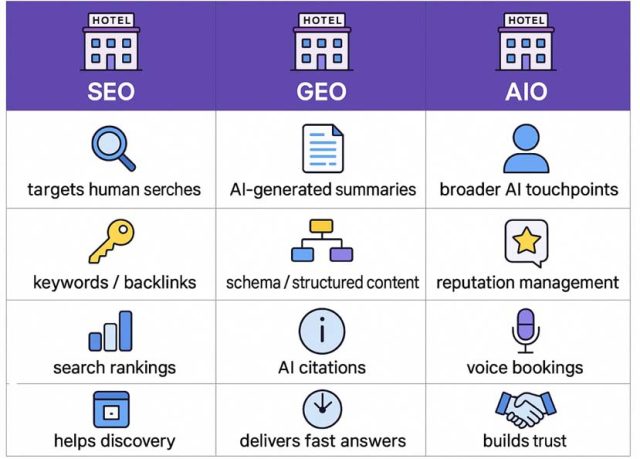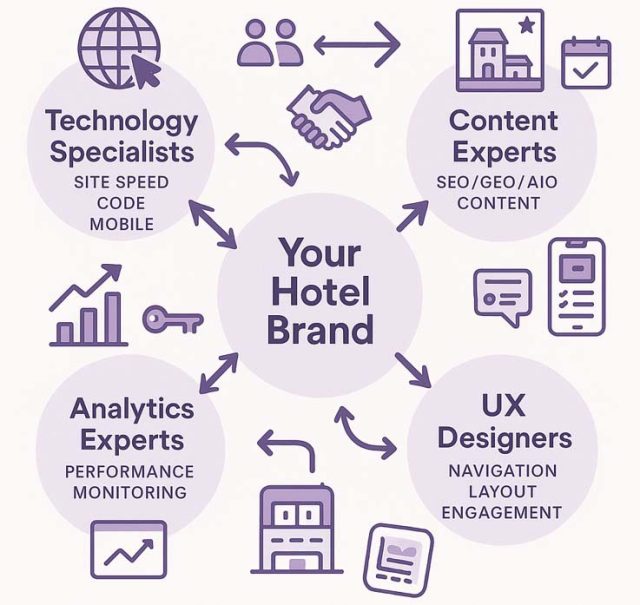More and more travelers are turning to AI.
When someone asks ChatGPT, “What’s the best beachfront hotel in Crete with a spa?”, the AI doesn’t show a list of websites. It delivers a direct answer, often based on content it deems trustworthy, structured, and authoritative. And if your hotel isn’t part of that answer, you don’t even enter the conversation. In this new search reality, visibility is no longer about page one rankings, it’s about being the one the AI chooses to recommend.

Why SEO, GEO, and AIO Matter for Hotels
SEO, GEO, and AIO are three critical terms that any hotel professional should know. Each one affects how people find, trust, and book your hotel online. Understanding what sets them apart will help you attract more guests and grow your business.
Search Engine Optimization (SEO)
Search Engine Optimization (SEO) is the traditional art of ranking your hotel's website in Google, Bing, and other search engine results pages (SERPs).
SEO's goal:
- Win high rankings to drive organic (unpaid) traffic to your hotel's site.
- Use keywords, structured data, and high-authority links to prove your site's value.
- Support more direct bookings by making your website the obvious choice in the search results.
While SEO remains essential for visibility in traditional search engines, it’s no longer enough on its own. AI-powered platforms don’t just list websites, they generate answers.
To appear in those answers, your hotel content must go beyond keywords and links. It needs to be structured, credible, and easy for AI to understand. That’s where AIO and GEO come in—expanding your strategy to meet the demands of today’s search behavior.

Artificial Intelligence Optimization (AIO)
AIO elevates visibility to a new level, future-proofing your website's presence for AI search engines, voice assistants, and advanced booking bots.
H3: AIO's goal:
- Ensure your hotel appears in generative responses, voice searches, and next-generation digital assistants.
- Build credibility, trust, and visibility in systems that combine real-time data, user reviews, and contextual insights, far beyond just ranking in a list.
Generative Engine Optimization (GEO)
GEO goes a step further, focusing on how your content gets featured in AI-generated answers and summaries. AI chat tools like ChatGPT, Gemini, and Perplexity don't just list "ten hotels"—they pull trusted details to suggest and summarize properties.
GEO's goal:
- Make your hotel content machine-readable, credible, and easy to cite by AI models.
- Secure a top spot in AI-generated answers, such as Google's AI Overview.
Key Difference Breakdown: How SEO, GEO, and AIO Impact Hotel Visibility and Bookings
The AI-driven discovery changes how travelers pick a hotel. Ranking on Google's first page isn't the only goal. Now, you must earn trust in real-time, across AI interfaces, and in fast-moving "answer engines." Here's how each approach differs and why it matters for bookings:


